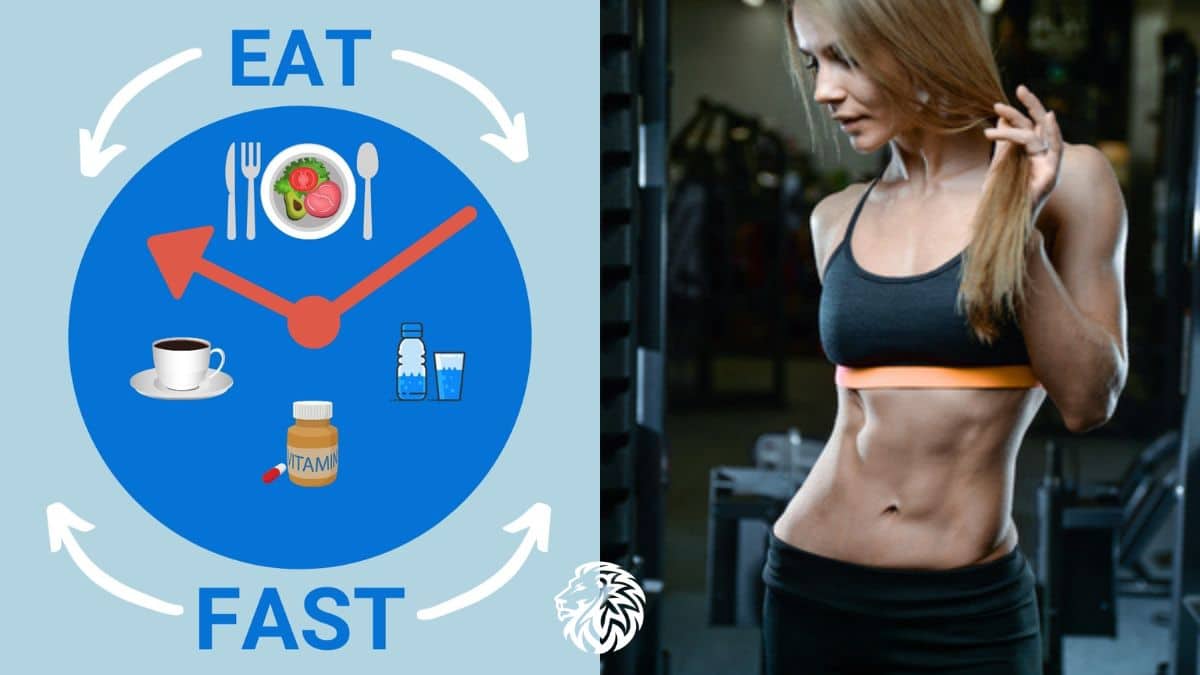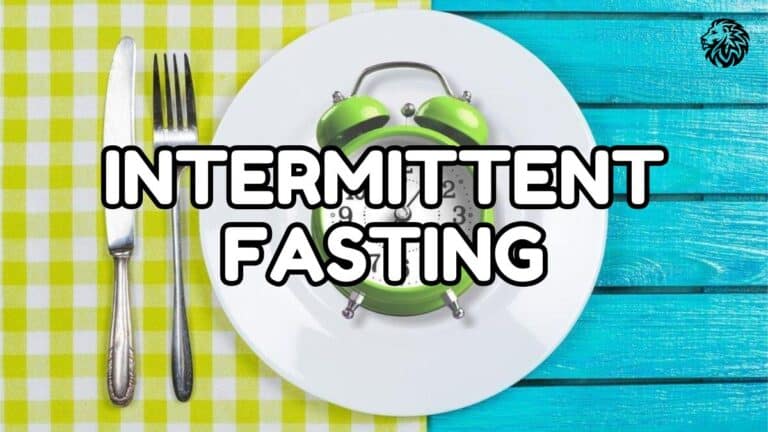Skipping meals might sound like a strange way to improve your health, but intermittent fasting has been gaining attention for its potential benefits. By focusing on when you eat instead of what you eat, this approach could have a surprising impact on your body. The connection between intermittent fasting and metabolism is particularly intriguing, with research suggesting it might help optimize energy use, support weight management, and even improve overall well-being. If you’re curious about how changing your eating schedule could affect your metabolism, there’s plenty to explore.
Understanding Intermittent Fasting
What is Intermittent Fasting?
Intermittent fasting (IF) is all about when you eat rather than what you munch on. This pattern of eating flips between eating and, well, not eating. While your body’s in this fasting mode, some interesting changes kick in, like getting better at handling insulin, beefing up those antioxidant defenses, and giving a boost to your mitochondria—the little powerhouses of your cells (Harvard Health Publishing).
Folks practice intermittent fasting in a bunch of ways. There’s the 16/8 method—sort of like skipping breakfast—where you fast for 16 hours and then chow down for 8 hours. Or you might try the 5:2 plan, where you eat like you usually do for five days and scale way back for the other two. Want to know more? Check out our piece on different fasting styles.
Benefits of Intermittent Fasting
Intermittent fasting isn’t just trendy; it’s got some science backing it up, particularly when it comes to jazzing up your metabolism.
- Weight Loss and Fat Burning: IF can totally help you ditch those extra pounds by getting your body to burn more fat. It works its magic by dropping those insulin levels, making it easier for your body to tap into stored fat, which is a plus if you’re on a weight-loss mission. Curious about combining fasting with fat loss? Read on intermittent fasting and fat reduction.
- Improved Insulin Sensitivity: Fasting can match the effectiveness of some calorie-cutting diets, leading to a 20-31% dip in insulin levels. Handy for anyone keeping an eye on their blood sugar.
- Increased Human Growth Hormone (HGH) Levels: Fasting’s secret sauce might include boosting HGH, which helps keep fat off and muscle on, with levels soaring up to five times higher in guys ([Healthline](https://www.healthline.com/nutrition/intermitt
ent-fasting-metabolism)). - Boost Metabolism: Fast for a short time, and your metabolism might jump by as much as 14%. One study noted a three-day fast could do exactly that. The increase could be thanks to more norepinephrine, a hormone that keeps fat burning rocking.
- Cellular Repair Processes: This fasting stuff even prompts your cells to clean house—the fancy term is autophagy. By clearing out old stuff and making space for new, healthy parts, your cells stay in top shape. To learn about this self-cleaning process, look at intermittent fasting and autophagy.
| Benefit | Impact |
|---|---|
| Weight Loss | Gets fat burning going |
| Insulin Sensitivity | Cuts insulin levels by 20-31% |
| HGH Levels | Pumps up hormone levels as much as 5x |
| Metabolism | Jolts metabolism up to 14% |
| Cellular Repair | Kicks autophagy into gear |
So there you have it: intermittent fasting could well be your ticket to better metabolic health and keeping your weight in check. If you’re eager to dive deeper, take a look at our roundup on the upside of fasting.
Impact on Metabolism
Let’s talk about how intermittent fasting and metabolism are the unexpected dynamic duo in the world of health. Knowing how this eating setup works can shine a light on those stubborn pounds and sugar levels.
Effects on Body Weight
Intermittent fasting isn’t just a fad—it’s like your hidden superpower for shedding pounds. Studies give it the thumbs-up, revealing folks can drop between 3–8% of their body weight in a short span of 3–24 weeks by sticking to intermittent fasting routines (Healthline). Imagine the health perks that come with that kind of weight loss.
Next up, a 2016 review suggests that fasting might just beat those harsh low-calorie diets hands down—especially if you’re wrestling with the old waistline (Healthline). It’s all about how your body ticks during those fasting hours.
And here’s another clincher—brief fasting spells can rev up your metabolism by a sweet 14%. One study found a 3-day fast upped the basal metabolic rate by exactly that smidge.
| Weight Shed Metrics | Results with Intermittent Fasting |
|---|---|
| Body Weight Drop | 3–8% in 3–24 weeks |
| Metabolism Boost | Up to 14% with short-term fasts |
Want more deets on shaking off pounds this way? Dive into our area on intermittent fasting for weight loss.
Influence on Insulin Levels
Intermittent fasting also plays the insulin field quite well, which does wonders for overall metabolic mojo. Research highlights nifty cuts in fasting blood sugar, HbA1c, and insulin levels, plus a dip in insulin resistance (HOMA-IR) (PMC):
| Measure | Shift After Fasting |
|---|---|
| Fasting Blood Sugar | Down by 0.15 mmol/L |
| Glycosylated Hemoglobin (HbA1c) | Drops by 0.08 |
| Plasma Insulin Levels | Slashed by 13.25 µUI |
| Insulin Resistance (HOMA-IR) | Reduced by 0.31 |
These changes hint that fasting could be a real MVP for diabetes and insulin resistance care. A boost in insulin sensitivity means your body juggles sugar like a pro, dodging those pesky long-term health issues.
For more juicy details on what else intermittent fasting shakes up, check out our article on intermittent fasting and insulin levels.
Grasping these metabolic shifts can arm you with the know-how to better tackle weight and sugar levels through intermittent fasting. Curious about different fasting styles? Peek at intermittent fasting methods. If you’re just dipping your toes in, our intro on intermittent fasting for beginners is your new best friend.
Different Approaches
Intermittent fasting is kinda like picking an outfit—different styles suit different folks. So, let’s break down the most common fasting methods to help you find your perfect fit.
16/8 Fasting
The 16/8 fasting plan is like the gateway drug of intermittent fasting—easy-going and beginner-friendly. Essentially, you get to chow down for 8 hours and then hit pause for the next 16. It’s a breeze to squeeze into the average day, like a pair of comfy jeans.
Wondering how it works? You pick an 8-hour slot for eating, such as starting at noon and wrapping up by 8 PM. Then from 8 PM till noon the following day, it’s just you and zero-calorie drinks like water, tea, and black coffee keeping you company.
| Time Period | Activity |
|---|---|
| 12:00 PM – 8:00 PM | Eating Window |
| 8:00 PM – 12:00 PM | Fasting Period |
This approach lets you cut those extra calories without giving you sad vibes and might just give your metabolism a high-five. Have a look at our detailed plan right here.
5:2 Diet
Next up, the 5:2 diet, or as some call it, the Fast Diet. Think of it as your twice-a-week detox. Eat normally five days a week and dial it down to 500-600 calories for the other two. It’s like a mini makeover for your meal plan.
Careful though, on fasting days, munch on foods that are low in calories but full of nutrients—you don’t wanna collapse halfway through the day. Research has shown that this plan can lead to some impressive results, like losing up to 8% body weight—so long, stubborn pounds.
| Day | Eating Pattern |
|---|---|
| Monday | Regular Eating |
| Tuesday | Fasting (500-600 calories) |
| Wednesday | Regular Eating |
| Thursday | Regular Eating |
| Friday | Fasting (500-600 calories) |
| Saturday | Regular Eating |
| Sunday | Regular Eating |
The charm of the 5:2 diet is in its flexibility—bending to fit your schedule more than a yoga instructor. For more deets on mixing up your fasting style, jump over here.
At the end of the day, whether you pick the 16/8 or the 5:2 (or any combo of the two), what matters is finding a rhythm that fits your life. Chat with a healthcare pro for personalized advice and check out our intermittent fasting tips to start strong.
Improving Metabolic Health
Impact on Chronic Diseases
Skipping meals on purpose? It’s not just a diet hack—it’s a potential lifesaver! Intermittent fasting is showing good vibes for slashing the risk of gnarly illnesses that swell from too much sugar and inflammation. If you’re wrestling with diabetes, cholesterol that acts up, unruly blood pressure, or those pesky extra pounds that creep up on you, this might just be the lifestyle tweak you need. Studies hint that giving your meals a timer might actually polish up those heart-health markers and kick those chronic issues to the curb. It’s the cool down on insulin chaos and inflammation that gets credit for these perks.
Cardiometabolic Markers
So, you may be wondering how fasting affects your body long term. Let’s get into some juicy findings:
- Insulin Resistance: Intermittent fasting is like a boss at smoothing out insulin troubles. Folks fighting metabolic syndrome saw better numbers for blood sugar and fats (PMC).
- Adiposity and Adiponectin: Cutting down food intake when fasting doesn’t just cut calories, it also boosts adiponectin (the stuff that keeps fat in check). The result? Less chub where it counts, like around your belly. Plus, those hormones that usually tell you to eat more? They chill out. That’s better self-control in the dinner department.
- Metabolic Homeostasis: Fasting can shake up how your body maintains its rhythm, impacting things like fat, lipids, insulin, and blood pressure. Just be ready—results can vary person to person (PMC).
- Body Weight and BMI: Alternate-Day Fasting (ADF) deserves a gold star here—it’s a real MVP for cutting weight, trimming waistlines, and dropping those BMI points. When stacked against Time-Restricted and Religious Fasting, it nabs the ‘most improved’ badge with ease.
| Fasting Protocol | Body Weight | BMI | Visceral Fat | Waist Circumference |
|---|---|---|---|---|
| Alternate-Day Fasting (ADF) | ✔️ Shrinks | ✔️ Shrinks | ✔️ Shrinks | ✔️ Shrinks |
| Time-Restricted Fasting (TRF) | Eh, okay | Eh, okay | Eh, okay | Eh, okay |
| Religious Fasting (RF) | Meh, decent | Meh, decent | Meh, decent | Meh, decent |
Unraveling these findings can help guide you if you’re hitching a ride on the fasting train. Curious to explore more? Check out the awesome benefits of intermittent fasting and peek at fasting schedules that could click with you. If you’re new to this, don’t worry, you can find a starter guide for intermittent fasting to help you roll smoothly.
Recommendations and Considerations
Consultation Before Starting
Thinking about diving into intermittent fasting? Well, it’s time to bring a doctor into the convo before you start skipping meals. This fasting thing isn’t a one-size-fits-all. A quick check-in with your healthcare pro is like having a snack for your peace of mind—it’s just smart! It’s super crucial if you’re juggling health stuff like diabetes, heart problems, or if there’s a tiny human on the way or in your arms. Johns Hopkins Medicine says a chat with your doc is non-negotiable. And if fasting starts giving you the jitters, head spins, or if your stomach’s doing somersaults, that’s your body’s way of saying, “Hey, let’s get a second opinion” (Johns Hopkins Medicine).
Adjusting to Intermittent Fasting
Alright, here’s the scoop: starting intermittent fasting might feel like battling a beast at first. Your belly will probably growl, and you might snap at your innocent pals. But hang in there—a study by Johns Hopkins’ brain whiz, Mark Mattson, says your body will settle down after a couple of weeks.
To help you through the cranky days, try these:
- Take it easy from the get-go: Dip your toes in with something like 16 hours off-eating, 8 hours on.
- Keep the water flowing: H2O is your new best friend—keeps those hunger pangs at bay too.
- Tune in to you: If something’s off, don’t hesitate to ring up your doc.
- Snag some fasting buddies: Download those fasting apps—they’re like having a fasting coach in your pocket.
| Consideration | Recommendation |
|---|---|
| Consultation | Chat with a healthcare provider first |
| Initial Period | Give yourself a 2-4 week grace period |
| Hydration | Drink lots of water while fasting |
| Support Tools | Fasting apps can be super handy |
Taking a chill approach when starting and tuning into your body’s signals can make intermittent fasting way easier. Plus, you might find your metabolism cheering you on as well (benefits on metabolism). If you’re curious for more tips and tricks, check out our posts on losing weight through fasting and general fasting tips.
Research and Studies
Findings on Body Weight and BMI
Intermittent fasting has popped up as a popular method to shed pounds while boosting your overall health. A review from 2014 had a good look and found that with a bit of fasting, you might drop around 3–8% of your body weight over just a few weeks (Healthline). Seems like fasting is a pretty solid way to keep those extra pounds in check.
Another study over on PubMed Central delivered some precise numbers after folks tried intermittent fasting:
| Metric | Average Reduction |
|---|---|
| Body Weight | 1.87 kg |
| BMI | 0.8 kg/m² |
| Waist Circumference | 2.08 cm |
These results indicate that fasting gets you somewhere when it comes to improving your waistline and overall health. If you’re curious about the different ways to fast, jump into our intermittent fasting methods section for more handy details.
Metabolic Profiles and Benefits
But wait, there’s more! Fasting isn’t just about looking leaner; it also spruces up your metabolic health. Fasting has been shown to boost your blood levels of human growth hormone. This can ramp up as much as five times in men during fasting stints (Healthline). This boost helps bust through fat and hang on to muscle – it’s like having a personal trainer in your body.
Taking a closer peek, the 5:2 diet – a bit of a fasting remix – led to weight loss in the ballpark of 3.2% to 8%, along with helpful shifts in your cholesterol and inflammation levels (PubMed Central).
| Health Metric | Observed Benefits |
|---|---|
| Body Weight | 3.2% – 8.0% drop |
| Inflammatory Markers | Bettered |
| Lipid Profile | Improved |
Throwing intermittent fasting into the mix could give you a leaner figure along with some nice metabolic perks. For tips tailored to newbies or anyone looking to start, check out our guides on intermittent fasting for beginners and intermittent fasting tips.







